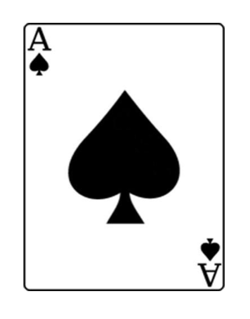 Editor's Note: This post was originally published in 2012 and has been updated to be more current and comprehensive.
Editor's Note: This post was originally published in 2012 and has been updated to be more current and comprehensive.
Does the thought of a job interview make you squirm, as if you are about to face the Spanish Inquisition? It doesn’t have to be that way.
In my experiences (as both an interviewee and interviewer), I’ve learned that the right amount of preparation and a little know-how can take you far. Below are some basic tips to ace your next interview and land the marketing job of your dreams.
1. Come Prepared
Research the company and interviewers ahead of time. Know who you are meeting with and what their roles are within the company. Connect with them via social media, and look for shared connections and interests. Note: Effectively building relationships through social media also demonstrates that you have the skills to do this for a client someday.
More importantly, understand what the company does and stands for. For example, do they specialize in a certain industry or niche service (content, SEO, PR), or do they provide integrated services to a range of clients? What is the culture like? Check out the website, read recent blog posts and news stories, and visit social media profiles to find out.
Those candidates that do their homework really stand out. Having a firm grip on the company also demonstrates that you are there because you are interested in THAT position, not just ANY position.
Also, be sure to bring enough copies of your resume to pass around, and some samples of your work and writing. When preparing or showing your portfolio, concentrate on those pieces that are most relevant to the position at hand.
For example, if the job is heavily focused on media relations, then an optimized press release, your strongest pitches and copies of placements may be ideal. But, if media relations is only a small part of the position, then other samples may be more relevant—such as ebooks, blog posts or feature stories you’ve written.
For a more natural flow, weave your portfolio into the conversation as you discuss your experience, instead of just handing it over at the end.
2. Arrive On Time, and In Proper Attire
It’s better to be early than late. Give yourself plenty of time to account for any unexpected situations (for example: traffic).
Arrive dressed appropriately. Standard interview protocol is a suit; however, there may be exceptions to this, depending on the situation. Don’t wear anything that may distract the interviewer away from you—think low cut tops, extremely high heels, very bright colors, etc.

3. Be a Conversationalist
When most people think interview, they imagine someone drilling them with questions. However, some of the best interviewees I’ve seen turn what would be a Q&A session into a conversation. They listen and respond, but also ask relevant follow-up questions, and throw in their own opinions and thoughts. This keeps the interviewer engaged and interested. Just be careful not to dominate the conversation or interrupt.
Even if you’re nervous, be careful with the “ums” and “uhs.” To avoid getting hung up on particular questions, brainstorm what you might be asked ahead of time, and practice with a friend, family member or your devoted little pup. Below are some sample questions to get you started:
- What makes you an ideal fit for our company?
- What are your favorite marketing blogs? Why?
- How have you used technology to improve upon a marketing campaign?
- What do you think are the biggest trends shaping the marketing services industry?
- What are your three greatest strengths? Weaknesses?
- How would you approach a marketing campaign from beginning to end?
- Do you have any questions for me? Note: This offers a good opportunity to learn about clients, projects, agency processes and more.
If a question catches you off guard, pause slightly and think before jumping into a response.
4. Stay In Touch
After your interview, don’t forget to follow up with brief email or handwritten note that thanks the interviewers for their time and consideration. Pull in any relevant information from the conversations you had to personalize and avoid a generic feel.
But it doesn’t stop there. Even if you are not offered a position, check in every once in awhile to see how things are going, or share an interesting and relevant article. This way, if another position opens up, you’re still top of mind. Tip: Consider using an Excel spreadsheet to manage contacts and communications.
Note: It’s common for those within the industry to hear about open jobs first. If you build a good rapport, interviewers you’ve established connections with may pass your name along if they hear about a position you’d be a good fit for.
What are your experiences as the interviewer or interviewee? What do you think makes a marketing candidate stand out?
Image Source: jaqianImage Source 2: WOCinTech

%20Logo_BlueOrange_Trademark.png?width=800&height=269&name=Ready%20North%20(RN)%20Logo_BlueOrange_Trademark.png)




.jpg?width=300&name=Services%20Hub%203%20(3).jpg)


COMMENTS